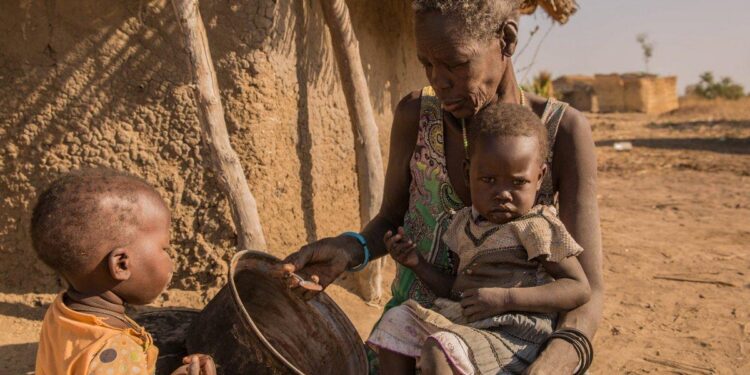The United Nations has issued a stark warning about escalating hunger levels across Africa, highlighting a growing food crisis that threatens millions. According to recent reports, a combination of conflict, climate change, and economic instability is driving soaring food insecurity throughout the continent. The UN calls for urgent international action to address the root causes and provide humanitarian assistance to the most vulnerable populations, as experts warn the situation could deteriorate further in the coming months.
UN Sounds Alarm Over Escalating Hunger Crisis Across Africa
The United Nations has issued a stark warning regarding the deepening hunger crisis affecting millions of people across Africa. A combination of prolonged droughts, ongoing conflicts, and economic instability has severely limited access to food, pushing vulnerable communities toward the brink of famine. Countries in the Horn of Africa and the Sahel region are among the hardest hit, with local agriculture decimated and food prices soaring. Humanitarian agencies stress the urgent need for increased aid and strategic interventions to prevent widespread malnutrition and loss of life.
Key factors aggravating the crisis include:
- Climate change: Unpredictable weather patterns leading to failed harvests.
- Conflict zones: Displacement disrupting food production and distribution networks.
- Inflation: Escalating food costs making basic staples unaffordable for many.
| Region | Population in Need (Millions) | Food Price Increase (%) | Emergency Alert Level |
|---|---|---|---|
| Horn of Africa | 35 | 45 | Critical |
| Sahel | 25 | 30 | Severe |
| Central Africa | 15 | 20 | High |
Food Insecurity Drivers Linked to Conflict Climate Change and Economic Instability
The persistent rise in hunger across Africa is propelled by an intricate web of challenges, where violent conflicts exacerbate food shortages by disrupting agricultural activities and displacing millions. In regions afflicted by instability, supply chains collapse, markets become inaccessible, and farmers lose critical planting seasons. Compounding this, erratic weather patterns—driven by climate change—intensify droughts and floods, decimating crop yields and further threatening food availability.
Economic instability adds another layer of complexity to this crisis, as inflation pushes staple food prices beyond the reach of many households. With the weakening of local currencies and soaring fuel costs, both production and transportation of essential goods become severely constrained. Key factors contributing to the accelerating food insecurity include:
- Conflict zones hinder agricultural labor and access to markets
- Climate shocks result in unreliable harvests and water scarcity
- Economic downturns reduce purchasing power and increase food costs
| Region | Primary Driver | Impact on Food Security |
|---|---|---|
| The Sahel | Conflict & Climate Stress | Crop failures; Displacement of 2M+ |
| Horn of Africa | Severe Drought & Inflation | Food price spikes; Malnutrition rise |
| Central Africa | Political Instability | Market disruption; Food shortages |
Calls for Immediate International Aid Boost and Sustainable Agricultural Investment
The escalating hunger crisis across Africa has prompted urgent appeals from global organizations and humanitarian agencies for an immediate surge in international aid. Experts warn that without a significant influx of resources, millions of vulnerable communities will face worsening food insecurity amid ongoing conflicts, climate shocks, and economic instability. Donor countries are being called upon to accelerate funding disbursements and ensure that delivery mechanisms prioritize reaching the hardest-hit populations in remote and conflict-affected areas.
Alongside emergency relief, there is a strong consensus on the necessity of long-term investments in sustainable agriculture to break the cycle of recurrent food shortages. Strategies under discussion include:
- Enhancing drought-resistant crop production
- Improving irrigation infrastructure and water management
- Supporting smallholder farmers with access to affordable credit and seeds
- Promoting climate-smart farming technologies to boost productivity
| Investment Focus | Expected Outcome |
|---|---|
| Seed quality improvement | Higher yields and resilience |
| Water management systems | Reduced drought impact |
| Farmer training programs | Enhanced farming skills |
| Market access expansion | Improved income stability |
The Conclusion
As the United Nations sounds the alarm on escalating hunger across Africa, urgent action from both local governments and the international community becomes imperative. Without increased aid, sustainable interventions, and coordinated efforts to address the underlying drivers of food insecurity, millions risk facing severe famine and its devastating consequences. The coming months will be critical in determining whether this crisis can be contained or allowed to deepen further across the continent.














